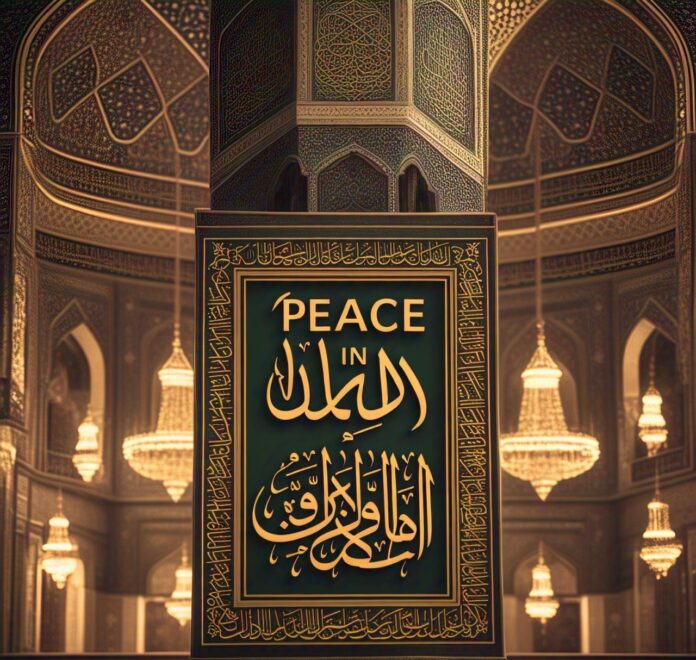Peace in Islam: A core principle of the faith
Islam, derived from the Arabic root word “Salam” meaning peace, submission, and safety, is fundamentally a religion that promotes peace and harmony.
Contrary to common misconceptions, Islam does not advocate violence or compulsion; instead, it teaches believers to uphold justice, compassion, and peaceful coexistence with all of humanity. The essence of Islamic teachings revolves around establishing peace within oneself, with others, and in society at large.
Peace as a Divine Objective
The ultimate aim of Islamic teachings is to create a society that embodies moral and spiritual well-being. The very greeting among Muslims—“As-Salaamu Alaikum” (Peace be upon you)—is a reflection of Islam’s deep commitment to peace.
The Qur’an, the holy book of Islam, repeatedly emphasizes peace as a divine objective and a reward for the righteous.
Qur’anic Teachings on Peace
Peace is God’s Greeting in Paradise:
“Their greeting on the Day they meet Him will be, ‘Peace.’ And He has prepared for them a generous reward.”
(Qur’an 33:44)
Reconciliation and Forgiveness:
“And if they incline to peace, then incline to it [also] and rely upon Allah. Indeed, it is He who is the Hearing, the Knowing.”
(Qur’an 8:61)
READ ALSO: Envy in Islam: A destructive disease of the heart
No Compulsion in Religion:
“Let there be no compulsion in religion. Truth has been made clear from error…”
(Qur’an 2:256)
Peace is Better in Conflict Resolution:
“…but reconciliation is best…”
(Qur’an 4:128)
These verses highlight that Islam not only encourages peace but also prioritizes it over conflict, even urging Muslims to accept peace if the opposing party is willing.
Prophet Muhammad (PBUH): The Ambassador of Peace
The Prophet Muhammad (peace be upon him) is often described as “Rahmatan lil-‘Alamin” (Mercy to all the worlds). His life was a practical demonstration of compassion, patience, and peaceful conduct even in the face of hostility.
Hadiths on Peace
Greeting of Peace:
“You will not enter Paradise until you believe, and you will not believe until you love one another. Shall I tell you something that will make you love one another? Spread peace (Salaam) among yourselves.”
(Sahih Muslim, Hadith 54)
Reward for Peaceful Actions:
“The best among you is the one from whose tongue and hand the Muslims are safe.”
(Sahih al-Bukhari, Hadith 10)
Avoiding Conflict:
“A strong person is not the one who throws his adversaries to the ground. A strong person is the one who contains himself when angry.”
(Sahih al-Bukhari, Hadith 6114)
In conclusion, Islam is inherently a religion of peace, both in spirit and in practice. Its teachings advocate for peaceful relations, justice, and mercy—not only within the Muslim community but also with people of other faiths. Through the Qur’an and the Sunnah of the Prophet Muhammad (PBUH), Islam encourages followers to be ambassadors of peace, actively promoting harmony in every aspect of life.
In a world often troubled by division and conflict, the Islamic message of peace remains as vital and relevant as ever.
Follow the Neptune Prime channel on WhatsApp:
Do you have breaking news, interview request, opinion, suggestion, or want your event covered? Email us at neptuneprime2233@gmail.com





